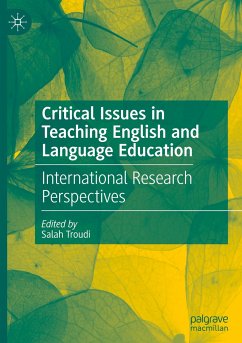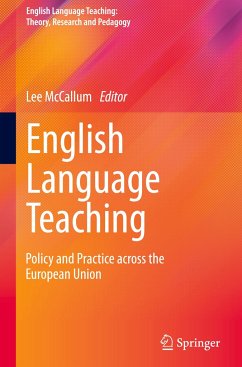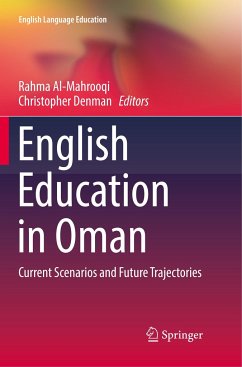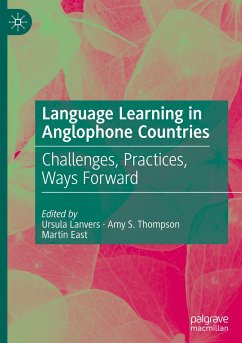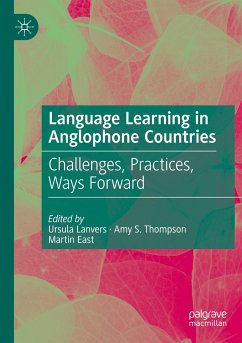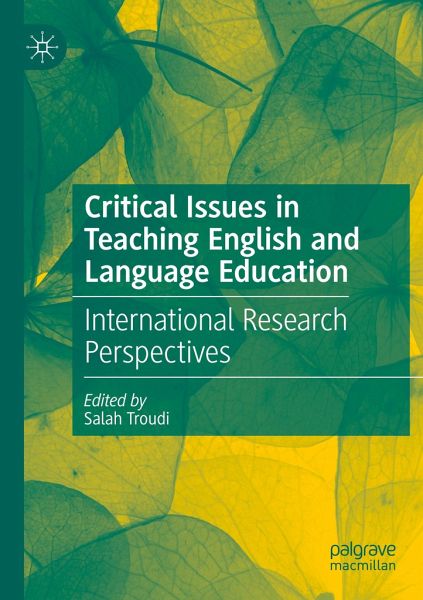
Critical Issues in Teaching English and Language Education
International Research Perspectives
Herausgegeben: Troudi, Salah
Versandkostenfrei!
Versandfertig in 6-10 Tagen
113,99 €
inkl. MwSt.

PAYBACK Punkte
57 °P sammeln!
This edited book brings together a collection of research-based chapters that address a variety of topics related to the teaching of English in different contexts around the world. The chapters are informed by a critical approach to research, employing a variety of research methods to question and problematize taken-for-granted definitions and practices in areas such as classroom pedagogy, testing, curriculum, language policy, the position of English as a medium of instruction, educational management, teacher education, materials and evaluation. This book addresses a major gap in theoretical a...
This edited book brings together a collection of research-based chapters that address a variety of topics related to the teaching of English in different contexts around the world. The chapters are informed by a critical approach to research, employing a variety of research methods to question and problematize taken-for-granted definitions and practices in areas such as classroom pedagogy, testing, curriculum, language policy, the position of English as a medium of instruction, educational management, teacher education, materials and evaluation. This book addresses a major gap in theoretical and research literature in the area of teaching English, and it will be of interest to trainee and practising teachers, research students and scholars of EFL and TESOL, and researchers in applied linguistics.



